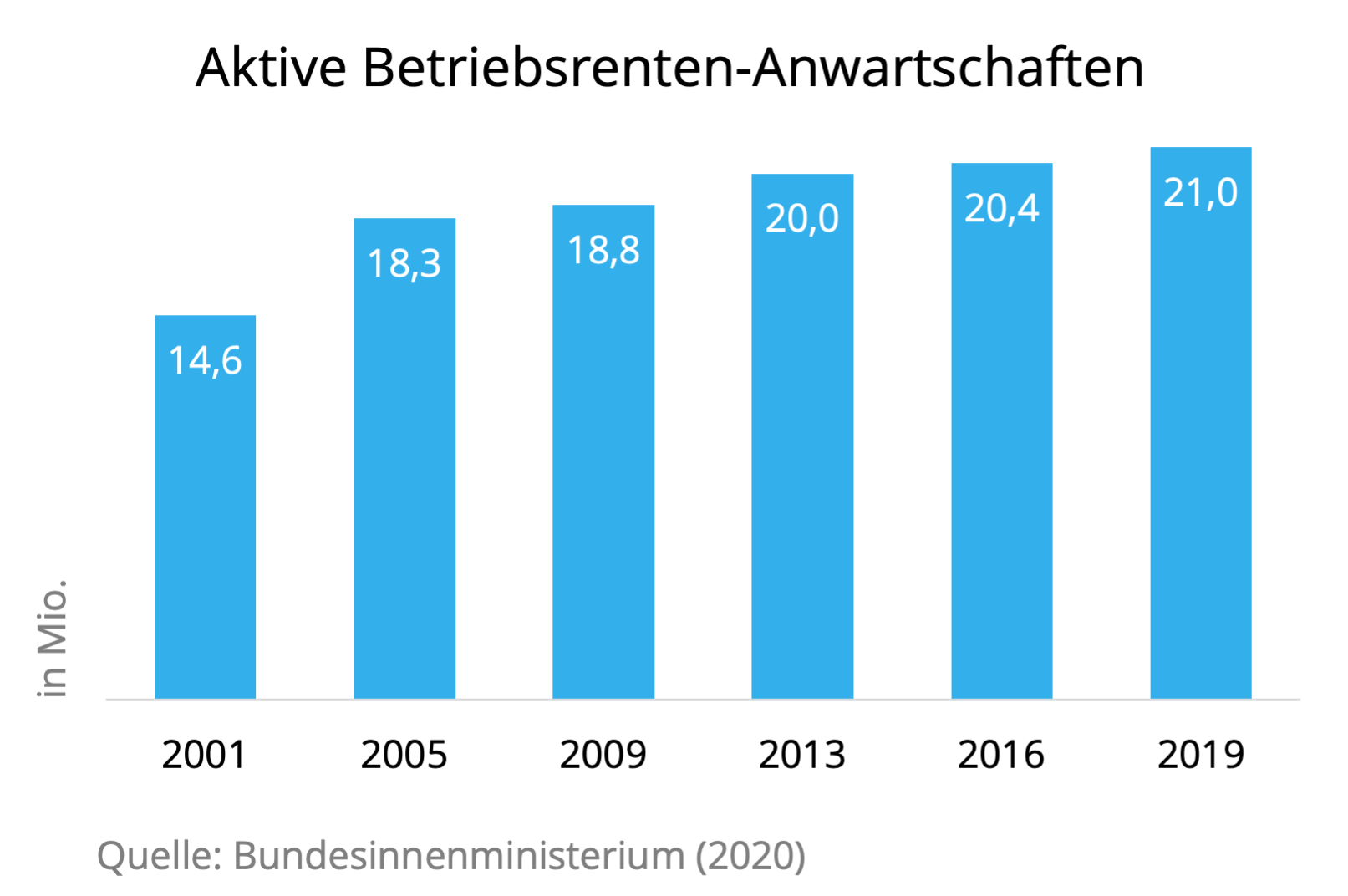Achieving further expansion with improved framework conditions
Germany is one of the EU member states with a long and successful tradition of company pension schemes. Companies introduced this employer benefit for their employees as early as the century before last and have continued to develop it successfully to this day. Together with statutory pension insurance and private pension provision, occupational pension provision has therefore long been one of the pillars of German old-age provision.

©AdobeStock Butch
There is still a need to strengthen funded pension provision. Especially in the current capital market environment, the particular strengths of company pension schemes come to the fore: their very efficient financing options, the high degree of security, their cost-effective structures and the risk equalization possible due to their collective organization. In addition to its socio-political advantages, company pension schemes also serve a personnel policy purpose in the competition for qualified employees. It helps to attract and retain employees - an advantage that will become even more important in view of the increasing shortage of skilled workers. Company pension schemes can also be used in such a way that the transition from the working phase to the retirement phase can be structured flexibly.
No further burdens for the company pension scheme
In order to preserve these advantages, occupational pensions must not be further burdened with bureaucracy and additional costs at European and national level. However, additional burdens must also be avoided at national level. This has not always been the case in recent years. In recent years, occupational pension schemes have undergone numerous legal changes that have increased their complexity, raised costs and tied up additional company resources. Examples include the new regulations on pension equalization law, the reform of accounting law, changes to financial market supervision and additional tax burdens. In contrast, there was not a single noteworthy project to simplify or reduce the bureaucratic burden on company pension schemes.
Improving the legal framework
The adoption of the Occupational Pensions Strengthening Act presents a great opportunity to spread company pension schemes. The introduction of pure defined contribution plans can also help to attract employers to company pension schemes who have previously stayed away from them due to the sometimes very long-term and difficult to manage liability risks. In addition, the pure defined contribution scheme - which has long been possible and common in many countries - offers the opportunity of a more profitable capital investment.
However, the legislator must continue to improve the framework conditions and also enable pure defined contribution plans in areas where companies cannot use them due to the lack of scope of corresponding collective agreements. In particular, the use of pure defined contribution plans must also be made possible for employers for whom there is no collective agreement on a social partner model. This is firstly because it must be assumed that a social partner model will not be agreed for every collective bargaining area and secondly because collective bargaining agreements do not exist in all economic sectors, so that in these cases it would not be possible to refer to relevant collective bargaining agreements in order to enable the agreement of a pure defined contribution scheme.
It is disappointing that employers, of all people, who are prepared to take full responsibility for the company pensions they have promised, will not benefit at all from the legal changes. Employers who have made direct commitments or have committed to company pension schemes via a support fund will be denied the company pension contribution. In addition, the legislator continues to deny them full tax recognition of their company pension obligations, which is probably also required under constitutional law. It is unrealistic for tax law to continue to assume that companies can achieve 6% interest.
Company pension schemes are largely financed by employers:
Of the total expenditure for company pension schemes amounting to € 37 billion, employers accounted for by far the largest share at around 75 % (BMAS, 2022s).








